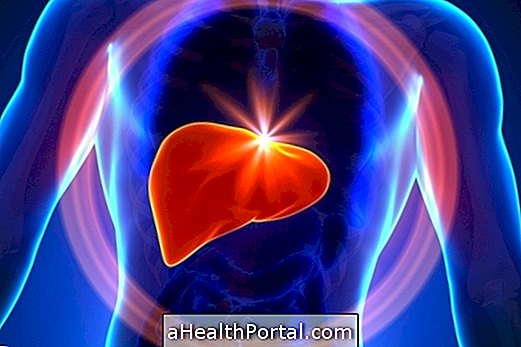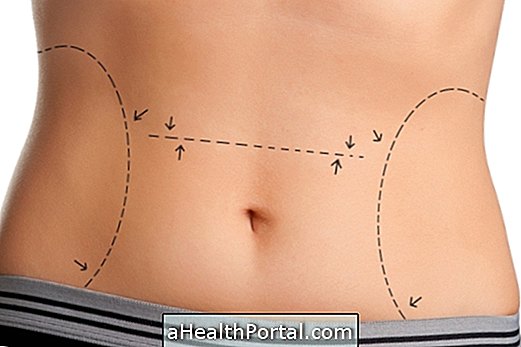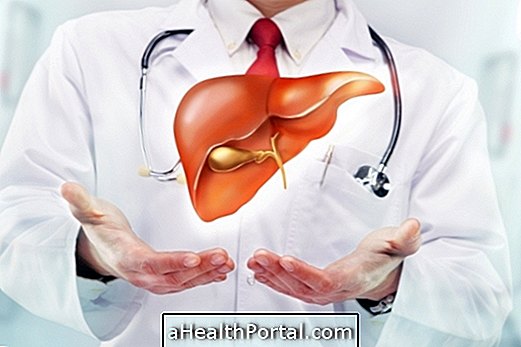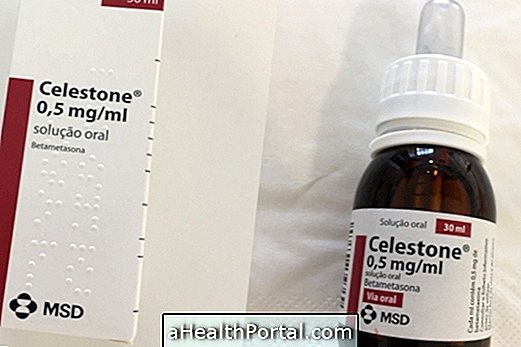Autoimmune hepatitis is a disease that causes chronic inflammation in the liver due to a disorder in the immune system, which recognizes its own cells as foreign and attacks them, causing damage to liver function and symptoms such as abdominal pain, yellowing of the skin or strong nausea, for example.
Autoimmune hepatitis usually occurs before age 30 and is more common in women. It is not yet known the exact cause of this disease, which is probably related to genetic changes, but it should be remembered that it is not a contagious disease and therefore is not transferable from one person to another.
In addition, autoimmune hepatitis can be divided into two subtypes:
- Autoimmune hepatitis type 1: most common between the ages of 16 and 30, characterized by the appearance of FAN and AML antibodies in the blood test, and may be associated with the onset of other autoimmune diseases such as thyroiditis, celiac disease, synovitis and ulcerative colitis ;
- Autoimmune hepatitis type 2: usually occurs in children aged 2 to 14 years, the characteristic antibody is Anti-LKM1 and may arise in conjunction with diabetes, vitiligo and autoimmune thyroiditis.
Although it has no cure, autoimmune hepatitis can be very well controlled with the treatment, which is done with medicines to control immunity, such as Prednisone and Azathioprine, in addition to being indicated a balanced diet, rich in fruits, vegetables and cereals, avoiding consumption of alcohol, fats, excess preservatives and pesticides. Surgery or liver transplantation are only indicated in very serious cases.

Main symptoms
The initial symptoms of autoimmune hepatitis are excessive tiredness, loss of appetite and muscle pain; however, other symptoms include:
- Constant abdominal pain;
- Nausea and vomiting;
- Skin and yellow eyes;
- Light body itching;
- Joint pain;
- Swollen belly.
Usually, the disease has a gradual onset, slowly progressing from weeks to months, and may lead to liver fibrosis. However, in some cases, the disease is acute and rapidly worsening, or even the fulminant form, which is extremely severe and can cause death. Know what it is and what the dangers of fulminant hepatitis are.
In addition, in a small portion of cases, the disease may not cause symptoms, being discovered in routine exams, which evidence an increase of liver enzymes.
How to confirm
There is no specific examination or sign that defines the diagnosis of autoimmune hepatitis, so it is necessary for the physician to make an evaluation of the symptoms, laboratory tests and biopsy of the liver.
The commonly requested tests that aid in the diagnosis include the dosage of liver enzymes, called AST and ALT, globulins, gammaglobulins and dosage of autoantibodies, such as AAN, AAML, AAMFR-1.
In addition, it is important to exclude other causes of hepatitis, requesting the dosage of antibodies against viruses, to assess the presence of viral hepatitis, or detecting the consumption of drugs that can cause drug-induced hepatitis, for example. Learn to differentiate between types of hepatitis.
How is the treatment done?
Treatment for autoimmune hepatitis is indicated by the hepatologist or gastroenterologist, and is initiated with the ingestion of corticosteroid remedies, such as Prednisone, or immunosuppressants, such as azathioprine, which reduce acute inflammation of the liver by keeping it under control over the years, and can be done at home.
In addition, it is recommended that patients with autoimmune hepatitis make a varied and balanced diet, avoiding alcohol or eating very fatty foods, such as sausages and salty snacks. Learn more about the diet for autoimmune hepatitis.
In more severe cases, where inflammation can not be controlled with the use of medicines, liver transplant surgery may be used, which involves replacing the diseased liver with a healthy liver.
Autoimmune hepatitis in pregnancy is less severe because inflammation tends to subside, so many pregnant women may discontinue treatment during pregnancy to avoid malformations in the baby by resuming treatment within 2 weeks before delivery.






















